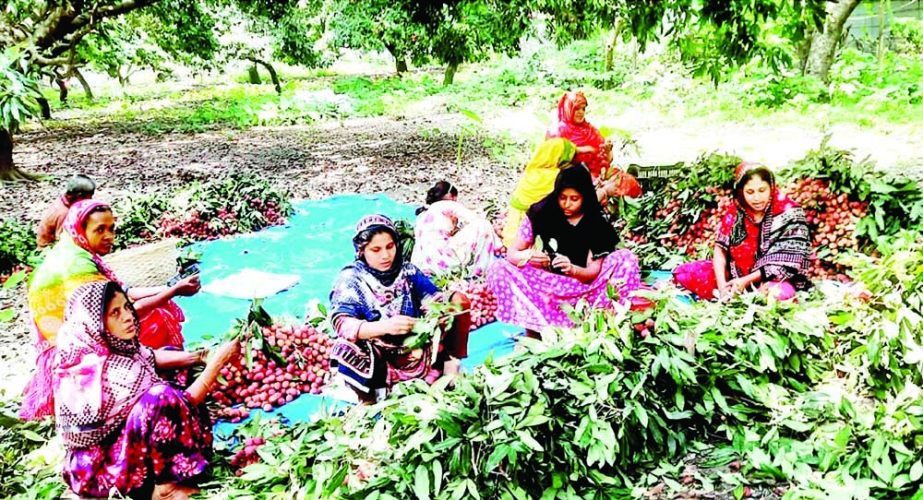
Ishwardi (Pabna) Correspondent :
Ishwardi, known as the capital of litchi. Many people do not know that about 30,000 women locally known as Lichukanya are directly involved in the production, care and marketing of Ishwardi litchi. These women also do litchi laying, sorting and counting. Many of the litchi girls involved in litchi production stayed behind. Apart from litchi girls, female members of each family of gardeners and farmers also take part in the selection and counting of litchi during the season. But in Ishwardi, litchi girls are always victims of wage inequality.
Ruhul Amin, owner of a litchi orchard in Maniknagar village of Ishwardi, said, “During the litchi season, about 30,000 women in the rural areas of Ishwardi are directly involved in various activities in the litchi orchard.” Especially after litchi ripening, most of the work of sorting and counting is done by women workers. Some of them are housewives, day laborers, school-college students. Every day from dawn to dusk 3-5 women work in different gardens.
Nargis Begum of Purbapara village in Maniknagar said, “I work all day in litchi season in the hope of earning extra income.” Some people buy goats with their income, some people buy utensils and pots and pans used for household purposes. Many also spend this money on their children’s education. If you can work in litchi season, you can earn a lot of money. ‘
Morzina Khatun, a litchi girl from Mirkamari village, said, “I work in a litchi garden in the hope of earning extra income.” At the end of the day, 400 taka was paid for attendance. But men get 800 taka for doing the same. Here too, women are victims of discrimination. ‘
Afroza Khatun, a college student from Joynagar village, said, ‘Hundreds of school-college students like me work in the litchi season. With the money I get as wages, I cover the cost of tuition for the whole year and buy clothes and cosmetics of my choice. The student said that she has been working in the litchi garden since she was in school. ‘
According to the current market price, women’s wages are low, said Afroza. He said that despite the demand for increase in wages, the gardeners do not want to pay more than this.
Abdul Jalil Kitab Mandal, a litchi farmer who won the National Agriculture Medal, said that women workers play a leading role in the selection and counting of litchi. If there were no women workers, the work of picking and counting litchi would have been difficult. Last year, women’s wages were 250 to 300 taka. This time 100 taka has been increased to 400. He said that women workers should not have any objection in this.

